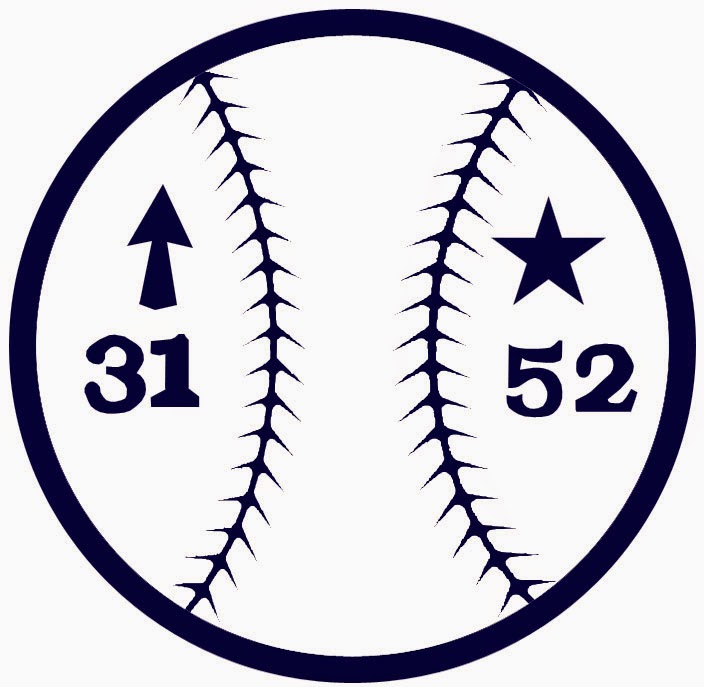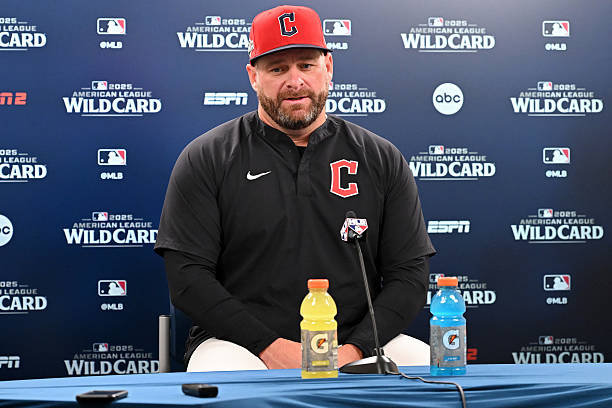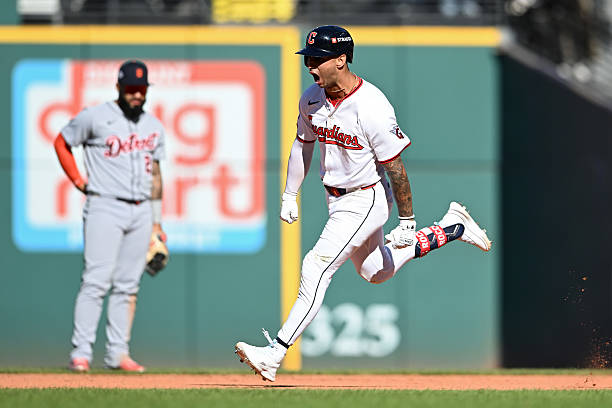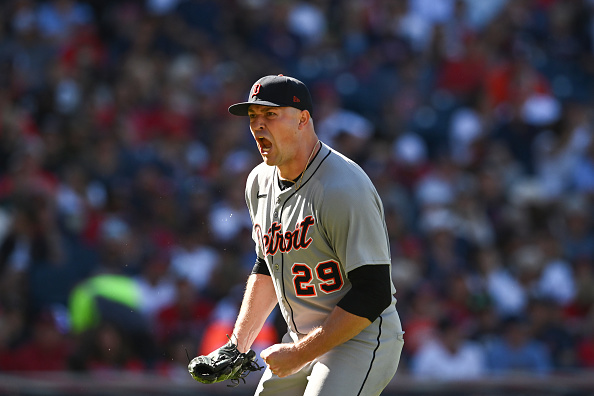A Terrible Date in Cleveland Baseball History
GOODYEAR, AZ. — March 22, 1993. It was a terrible date in Cleveland baseball history.
No sports fan in Cleveland or around America will forget that date. It was when the Cleveland Indians’ Steve Olin and Tim Crews were killed and Bob Ojeda came within inches of losing his life in a boating accident on Little Lake Nellie near Clermont, Fla.
That was about 25 miles north of the team’s training camp in Winter Haven, where third-year manager Mike Hargrove had given the entire ball club a rare spring-training day off. He never did again.
“They say that time heals all wounds, but it doesn’t,” Hargrove said more than 25 years later. “It just scabs over and gets scratched off every now and then. You try to bury the emotions. For me they come up maybe three or four times a year.”
In mentioning it to fans this week, I was surprised to discover that some out here at spring training did not know the story.
As media director of the Cleveland Crunch that night hosting the National Professional Soccer League All-Star Game, baseball was not on my mind. Our stars Hector Marinaro and Zoran Karic scored spectacular goals, including one on a bicycle kick by Marinaro shortly before halftime. I quickly called local TV stations to tell them they could pick up the highlights on the ESPN broadcast.
The late Gib Shanley, sports director at Channel 43, assured me he would use the clips, but was sorry he could not do much more. “Three of the Indians were in a big accident tonight in Florida,” he said. “I’m trying to find out what happened.”
From Fun & Frolic to Catastrophe
It took a few days for investigators to fully do that. Some teammates are still searching for spiritual resolve.
The pitchers and their families had spent the day at Crews’ 45-acre ranch along the lake having a picnic, riding horses, swimming and playing games. The men, along with strength coach Fernando Montes, were about to go fishing on a moonless night. They had forgotten some gear at the house and played a game of rock, paper scissors to see who had to go get it.
“I lost,” Montes said.
Not really. It kept him from being aboard Crews’ 18-foot power boat when it plowed into a pier that had recently been added. Crews knew the lake well, but on the moonless night apparently misjudged how far the 250-foot wooden structure stuck out. Nobody saw a thing. Montes only heard the crash, then silence. He got into his truck and drove along the shore to try and find his friends. A neighbor heard Ojeda calling for help and dialed 911.
Awful News
Embed from Getty Images
“Paramedics got there in five minutes, otherwise I would have bled to death,” Ojeda said five months later when he was finally able to talk about the traumatic tragedy for the first time.
Olin was killed instantly. Crews had severe head injuries and died the next morning. Ojeda had severe scalp lacerations and was hospitalized for weeks. “The only thing that saved me was I always slouch when sitting,” he later said.
Crews, 31, and Ojeda, 34, a former World Series star with the New York Mets, had both joined Cleveland as free agents from the Los Angeles Dodgers that winter. Olin, 27, was coming off the best of his four years in Cleveland’s bullpen in 1992. The side-arming right-hander had gone 8-5 with a 2.34 ERA and 29 saves for a club that finished 76-86.
“He was such a good kid, worked hard and had such a wonderful family,” veteran bullpen coach Luis Isaac told reporters. “A team can go get another pitcher. He had twin daughters. They lost their daddy.”
Later that week, 75-year-old Hall of Famer Bob Feller said, “Darn right, we’ll miss their ability, but it is like they say in show business, the show must go on. This shows that entertainment doesn’t mean a hill of beans and the game of baseball is insignificant.”
Memories Linger
Embed from Getty Images
“It’s something that you never forget,” said Cleveland Guardians coach Sandy Alomar Jr., back then a 26-year-old catcher. “It was unbelievable.”
Second baseman Carlos Baerga, then 23 and in the midst of four consecutive years of hitting over .300, was invited to the picnic. He didn’t go. “Maybe it would have been me,” he said years later. “I had to pick up my family at the airport. God maybe did that for a reason.”
Many players didn’t learn about the accident until the next morning. “Everybody was crying in the clubhouse,” Alomar recalled.
Hargrove and his wife Sharon, Montes, general manager John Hart, and other team coaches and executives had spent a sleepless night. They visited Ojeda in the hospital, tried to see Crews but were denied permission, and consoled Olin’s wife.
“My first memory was walking up to the clubhouse door early the next morning,” Hargrove recounted years later. “I knew all the players were in there and I had no clue what I was going to say or do. None. I asked God, ‘I have no idea what I’m doing, please help.’
“I opened that door, walked in, and it just happened. Everybody brought their chairs up into a big group. I sat in the middle and started talking. Until I broke down. Then one of the players started talking. It went on like that for, I don’t know, maybe two hours. We all just sat around and talked our memories, our responsibilities and how important we realized our families are to us.”
Never the Same
Embed from Getty Images
Relief pitcher Kevin Wickander was never the same. “My best friend,” he mumbled to reporters that day. “He was the best man in my wedding.”
Two months later, Cleveland sent the left-hander to the Cincinnati Reds. Hart reasoned it was best to try and give the 28-year-old a new start away from bitter memories. It didn’t help. Three years later, he was out of baseball. He battled substance abuse, lost his family and went to prison for theft.
Ojeda somehow reclaimed his life and pitched a few games for Cleveland. “I certainly went through the why am I here?” he revealed in his first interview about the tragedy that August, before his first game back in Cleveland. “I left the country for a while, had a lot of money in my pocket and wasn’t going to come back.”
He told how he flew around the world for days, seeking solace, wondering why it had happened, why he survived. Ojeda took a flight from Los Angeles to New York, then quickly bought a ticket to the first flight to Sweden. He spent a few days there, then just went on more long flights to and from wherever he could.
A Short Comeback
Ojeda worked two games in relief on the road, then started against the Toronto Blue Jays on Aug. 16, 1993, at Cleveland Stadium. He met a large media contingent, then got a standing ovation from the 25,546 fans in recognition of his ordeal when he took the mound.
It did not go well. Devon White singled. Roberto Alomar and Paul Molitor followed with home runs. Those were the only runs he gave up in five innings and he got a bigger ovation when he left. He was charged with the 4-1 loss. He went 2-1 in nine games overall that year, then signed with the New York Yankees.
“I had to leave,” he said. “The team was great to me. My teammates were great. So were the fans. But I just could not stay with those memories.”
His baseball focus did not improve in New York. He gave up 11 hits and eight runs over three innings and two outings and retired. He’s now 65, living in California, and seldom grants interviews.
A Winning Tribute
Teammates remembered their fallen friends two years later with a touching salute. When Cleveland finally made it to the post-season in 1995 for the first time in 41 years, players took turns raising the AL Central championship banner. Olin’s favorite song, “The Dance” by Garth Brooks, played on the sound system.
“A lot of guys were crying,” first-base coach Dave Nelson said in the raucous clubhouse afterwards. “Some of it was the joy of winning. A lot of it was remembering that day and our friends, especially Steve. That kid should have been here. He was supposed to be here. In a way, with that song, we made sure he was.”
Other Sad Stories
Cleveland has endured many sorrowful baseball memories. There have been so many injuries that curtailed careers. None rival the 1993 incident nor the tales of Ray Chapman, Addie Joss, Don Black, Herb Score, and Jim Warfield.
Chapman is the only MLB player to be killed in a game. The star shortstop was struck in the head by a fastball thrown by Carl Mays of the Yankees on Aug. 16, 1920, and died the next day. Several reasons were given for the tragedy. All likely contributed.
Those at the game said Chapman never moved and likely never saw the ball. Umpires back then were instructed to keep balls in play as long as possible to cut costs. Instead of being bright white, this ball was brownish and scuffed. Mays himself, after nearly being attacked by Chapman’s best friend — Cleveland player-manager Tris Speaker — held the ball up and according to reports claimed, “It sailed on me. Look at the scuff mark.”
Mays regularly threw a spitball and the incident was partly responsible for the pitch being outlawed after that season because of the unnatural way such a pitch breaks. Mays, later a Cleveland scout, vehemently denied the fatal pitch was a spitter.
Hall of Famer Felled
In his first seven years for Cleveland, Addie Joss had a 141-79 record. The right-hander’s brilliant career was cut short at age 31. He died of spinal meningitis on April 14, 1911. His career totals: 160-97 and the lowest career ERA in history — 1.89. Joss pitched two no-hitters, including a memorable perfect game in 1908 and seven one-hitters, including one in his big-league debut in 1902.
On July 11 of that season, the popular pitcher was honored by his friends from around the American League. They gathered at Cleveland’s League Park for a charity benefit game, the proceeds going to Joss’ wife. It is considered by historians the first all-star collection of players to play in one game.
Horror at Home Plate
Even in Cleveland’s greatest season, the club could not avoid misadventure on the way to the city’s last World Series triumph in 1948.
Don Black, despite bouts of alcoholism, had pitched two no-hitters in the minors and one in the majors. He had talent. That year, he was a spot starter on a staff loaded with greatness: Hall of Famers Feller, Bob Lemon and Satchel Paige and 20-game-winning rookie Gene Bearden.
The right-hander started against the St. Louis Browns on Sept. 13. He fouled off a pitch in his first time up in the second inning – and keeled over. Rushed to the hospital after suffering a brain hemorrhage, he never pitched again. In 1957, he fainted while driving, crashed off the road and suffered a fractured skull. He died in 1959 of lung cancer at age 42.
What Might Have Been
Herb Score was the AL Rookie of the Year in 1955 and won 20 a year later. Then he got hit in the right eye by a line drive off the bat of the Yankees’ Gil McDougald in 1957, and was never the same. He always claimed that despite missing the rest of that season and much of 1958, the incident did not ruin his career. The lefty went only 17-26 over the next six years for Cleveland and the Chicago White Sox, however.
From his hospital bed, his eye and broken nose bandaged, the lefty told reporters: “I threw it straight, and he hit it just as straight. I didn’t see the ball until it was on me. All I know is the ball got big fast.”
Score became a beloved baseball broadcaster in Cleveland in 1964. His final game was Cleveland’s heart-breaking Game Seven loss in the 1997 World Series in Florida. A year later, he suffered terrible injuries when his car was hit by a tractor-trailer. Confined to a wheelchair, he died in 2008 at age 75.
More Tears
Jim Warfield, a popular trainer for more than 30 years with the Cleveland Indians, died at age 60 on July 16, 2002, one day after suffering a brain hemorrhage at the ballpark. “He was as loved as anyone in the game of baseball,” third baseman Travis Fryman told Tom Withers of The Associated Press. “There is nothing we can do that will do him justice. He had a tremendous effect on a lot of people. There isn’t a funeral home big enough to hold all the people.”
In the team’s first game after his death, future Hall of Fame first baseman Jim Thome scraped the initials JW in the dirt at first base. Every player wrote JW on their caps. The next day, a JW patch was sewn on every uniform sleeve and worn for the rest of the season.
More Cleveland Guardians Articles
More General Baseball Articles
More MLB Articles
Main Photo:
The patch worn by the then-Cleveland Indians in memory of Tim Crews (52) and Steve Olin (31), who were killed in a boating accident in Clermont, Florida on March 22, 1993.
- Categories
-
Cleveland Guardians
General Baseball





